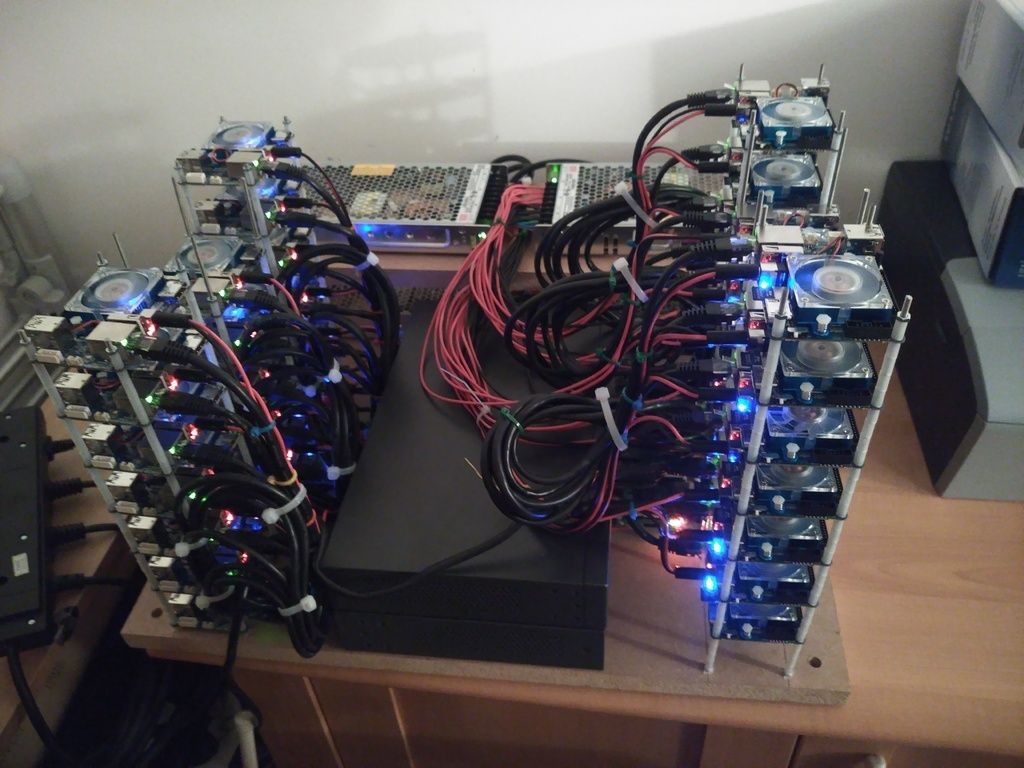Chia (XCH) Grows Demand for Hard Drive Mining

#
Chia (XCH) is a newly arrived crypto project with the chief goal of discovering a more eco-friendly alternative of mining. The XCH main net arrived in March and has already spread to most Asian exchanges. The asset is engineered to be scarce and high-priced, trading at $1,385.27.
As of May 18, there are 514,760 XCH in circulation, making Chia one of the most scarcity-driven new projects. Trading volumes are just picking up, and stand below $88M. XCH was relatively unaffected by the recent market correction.
Chia, a project built by Bram Cohen, the founder of BitTorrent, gained prominence after years in the making. After being listed on exchanges, the next stop for the Chia team is to seek an initial public offering (IPO) on a US exchange, and be treated like a public company. The listing has been delayed since 2018 and there is no hard and fast date set for the stock sale.
The high market price of XCH, however, is the chief attraction that has raised demand for fast hard disk drives and enterprise-quality SSDs.
How Chia Solves the Need for Secure Cryptography
The protection of a blockchain requires tamper-proof cryptography. For proof-of-work networks, the discovery of complex block header numbers is done in real time, through constant calculations. The Chia solution is to generate multiple potential hashes, which are then distributed to any willing “farmer”.
The hashes take up significant space in hard drives, and this is why the Chia network’s chief resource is disk space. Farmers set aside the space needed for the hashes. Then, when a block header needs to be discovered, their portion of the hashes is searched to find a number that satisfies the condition.
Farming Chia is then not unlike buying millions of lottery tickets and waiting until one of the numbers comes up. The more disk space is set aside, the more chance it will contain the right cryptographic number.
Chia plotting and farming is less energy expensive, and the HDD equipment can last longer in comparison to graphic cards, which wear out faster with mining. Network participants are already boosting their contributions with multiple devices.
The energy use of the Chia network is limited to requests between nodes and farmers, as well as the energy use and electronic waste of exploiting HDDs. The network is fully decentralized and aims to achieve consensus between distant users, running consumer electronics.
Is Chia Safe and Fair?
The reported amount of circulating XCH coins is indeed small. But the Chia project also has an elephant in the room – a 99% premine held by the team. There are 21M XCH waiting in the sidelines, with the potential to be sold gradually.
The initial expectation was for XCH to command a relatively low price, with predictions before exchange listings envisioning a price anywhere between $5 and $600. The valuations above $1,600 were a surprise, but the coin is also in a price discovery stage.
At this point, it is unknown what the final supply of XCH will be, and how the sale of the premine will affect the price. For now, Chia plotting is open to anyone, although competition with high-capacity providers means single-HDD mining may take too long to produce a block.
Is Chia Plotting and Disk Farming Safe?
The proposition of Chia is attractive – there is the possibility to mine at home, and earn a high-priced asset. However, not all Chia farming and plotting is efficient.
Brad Cohen also warned against using consumer-grade SSDs to plot Chia, as the high intensity usage will be damaging.
The Chia network difficulty has grown constantly, showing new farmers are joining the network. Over time, Cohen expects the growth to slow down as the network stabilizes.
The goal of Chia is to mine another 21M coins in the coming years, on an accelerated schedule. There is no hard cap for Chia, but the token creation schedule will happen on decreasing inflation. The next six years will be the period with the most active mining.
Currently, Chia is set up to produce 16 blocks every 5 minutes, with a 2 XCH block reward. The first halving for the Chia blockchain will come in three years.
Chia is the Corporate Version of Proof-of-Capacity
Crypto social media were quick to notice that Chia had all the trappings of a corporate project, similar to Ripple, Inc., Algorand and other startups with a clear mission and a team to set the direction.
This partial centralization is worrying to some crypto users. However, Chia is an example of cryptographic electronic coins attempting to gain more connections with the mainstream finance space.
A similar project that uses the grass-roots approach is Burstcoin (BURST), a proof-of-capacity network that has existed since 2015. BURST now trades around $0.02, after a recent price spike. The asset is yet to recover its early 2018 price above $0.09.
Unlike Maidsafe (MAID) or Siacoin (SIA), the disk capacity is not used for decentralized file sharing. Instead, both XCH and BURST simply “waste” the disk space to determine the right to create the next block and get the reward.
#
With over 50 coins and an obsession with security, Kraken is one of the safest places to buy and trade crypto.

Kraken has a good reputation for security and protection of your funds and operates across the USA (except NY), Canada, the EU and Japan

We analyse the most popular eco friendly cryptocurrencies looking a their energy efficiency and usage

Eight ways to buy Bitcoin without needing ID or giving personal information

The first cryptocurrency. It has limitations for transactions but it is still the most popular being secure, trusted and independent from banks and governments.

A multi-utility asset, linked to the diverse activities of the Binance Exchange. A token to pay trading fees, as well as participate in new asset sales, BNB now runs on a proprietary blockchain.